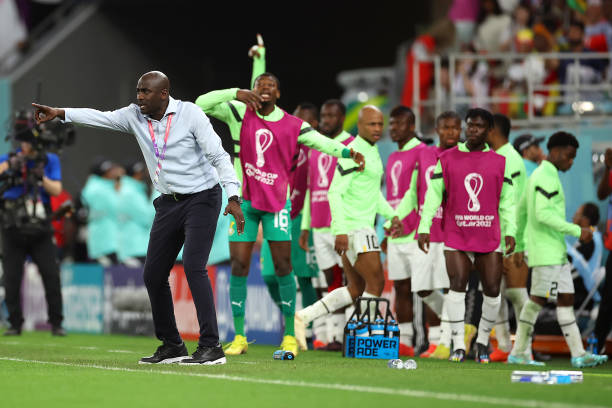Shortly after Ghana’s 0-2 defeat to Uruguay in the final Group H encounter in Qatar, a stern-looking Otto Addo appeared at the post-match press conference willing to badly get something off his chest.
After being introduced to the press, Otto minced no words after a journalist asked if he was going to step down. He answered “I will step down from my position as it was agreed on in May” He was clear in his mind that the news will be no surprise to his employers having stated in many ways before the World Cup that he was still committed to his role at German giants Borussia Dortmund. For the record Otto Addo is a talent coach and second assistant at Dortmund.
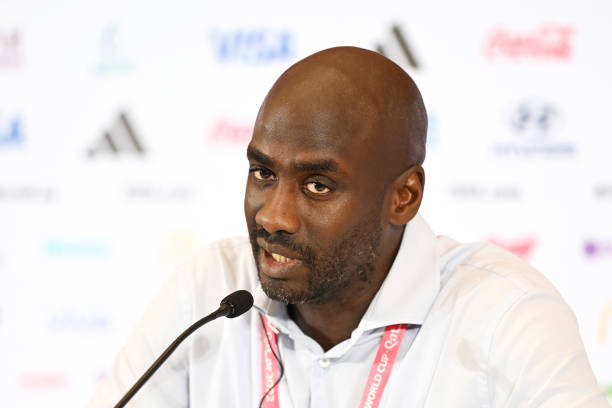
He will explain details of his resignation at a presser a day after, but amidst Ghana’s rough 2022 World Cup post-mortem it's worth noting that Addo left behind a squad that has the potential to reach unthinkable heights in the coming years.
Coming in at such a tricky time, 26 days prior to announcing Otto as Interim Ghana coach ahead of the World Cup qualifiers, the Black Stars had just put up their worst performance at the Africa Cup of Nations in Cameroon. In Garoua, the Black Stars lost 3-2 to tiny Comoros and rounded up their tournament without recording a win in a group that housed Morocco, Gabon and Comoros.
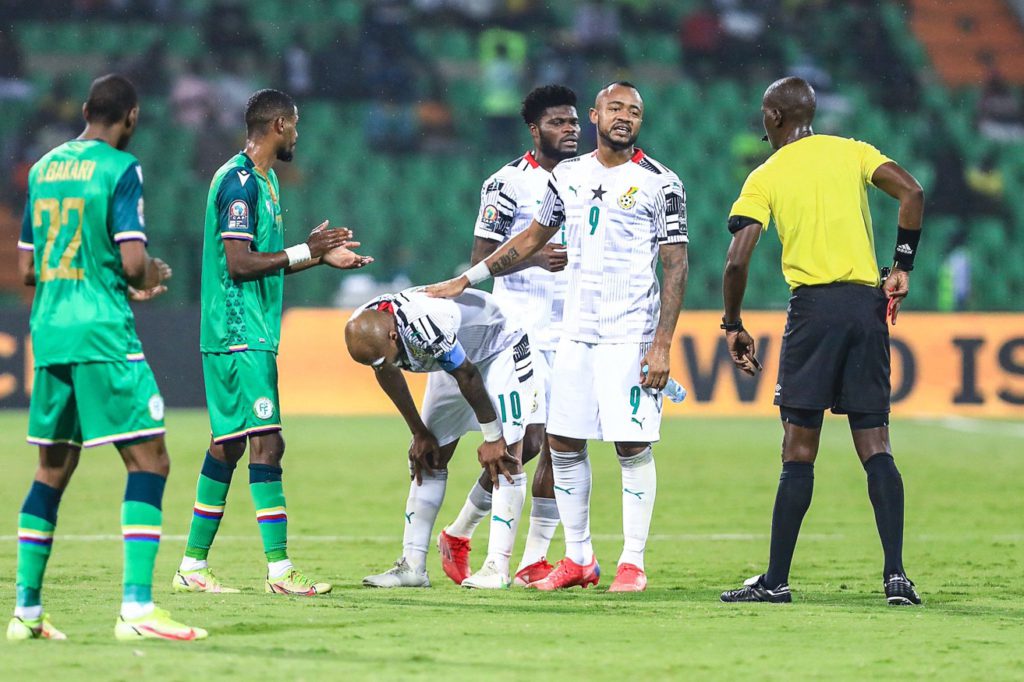
In the stands that night, many Ghanaians were hopeful the Stars could even draw when goals from Richmond Boakye and Alexander Djiku levelled the game up for Ghana, but Mogni grabbed a winner with five minutes remaining. Ghana exited the group stage of the competition in 2006, failed to go past the round of 16 in 2019, but not winning a single game meant that was on paper the most dreadful performance by the four time African champions.
The man who supervised the debacle, Milovan Rajevac, was fired despite his desire to stay on. Next for Ghana was a tricky World Cup playoff game against Nigeria who exited the AFCON competition in the round of 16 but played much better than Ghana. Addo accepted the job with a huge risk of possibly ending his entire career with the big derby coming up – yes, qualifying to the World Cup will make him a Ghanaian hero but failing will surely be the end of his career on these shores – the unwritten rules were quite clear.
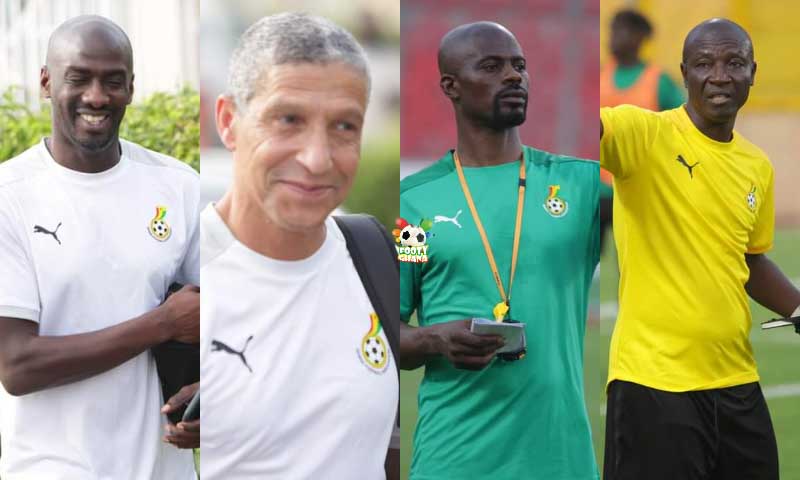
He was appointed as an interim manager alongside two-time Ghana Premier League champion Didi Dramani, Aston Villa U23 coach, George Boateng and the experienced English Premier League manager, Chris Houghton playing the role as a Technical Adviser on February 9.
Romance after the Jollof derby
Otto's first job was to surmount the Nigerian hurdle or be truly forgotten. His employers where keen as well because, missing the World Cup after a poor showing at the AFCON in the minds of ordinary football fans would “mean not good enough” for the job. Ghanaians were skeptic of the Black Stars because of their poor displays in Cameroon. Ghana settled for a 0-0 draw after VAR overruled a decision to award the Super Eagles a penalty in the first leg of the playoff in Kumasi. A review of the decision in the closing stages of the Jollof derby found that Ghana midfielder Iddrisu Baba was fouled before he handled the ball.
In the return leg in Abuja, a long range shot by Thomas Partey ensured Ghana won the tie (1-1) on away goals to book a ticket to the 2022 World Cup in Qatar. The World Cup ticket also meant an elevation from interim Ghana coach to substantive manager for Otto Addo - He was going to be at the mundial with his initial 5 man technical team.
Building a new squad
Ghana’s performance against Nigeria looked a lot more organized but was still far from perfect which meant the approaching weeks and months were huge windows for augmenting the squad.
He led a wild charge by the Ghana Football Association to get international players of Ghanaian descent to switch nationality. Four months before competing at the World Cup, the Ghana Football Association announced five new recruits who were now eligible to play for the Black Stars in Qatar.
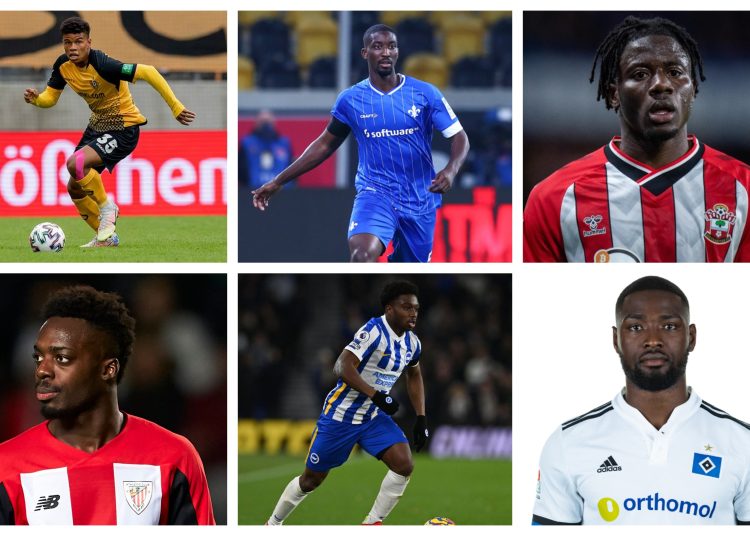
Brighton & Hove Albion defender Tariq Lamptey, who had played for England Under-21s, Hamburger SV pair Stephan Ambrosius and Ransford-Yeboah Königsdörffer who both represented Germany Under-21s, Athletic Bilbao forward, Iñaki Williams who played one friendly for Spain, and Germany-based player Patrick Pfeiffer a defender at Darmstadt all committed to Ghana. Southampton defender Mohammed Salisu, who initially turned down a Black Stars call-up, also agreed to be called by the technical handlers of the Black Stars ahead of the 2022 FIFA Mundial in November.
The extensive scouting will ensure that in-form Racing Lens midfielder, Salis Abdul Samed and Club Brugge’s Kamal Sowah will be called for the competition.

Friendlies games against Brazil (0-3), Nicaragua (1-0), Switzerland (2-0) and the Kirin cup in Japan were not enough. But all the technical team had to do was fine-tune the team for Qatar. Ghana arrived at the Mundial as the lowest-ranked team (61st) and the youngest squad.
What had changed under Otto Addo?
I followed Otto Addo’s Black Stars so closely to make key observations that were consistent throughout the tenure. The regard for time massively improved with a mini schedule released 24 hours prior. The technical team and players stuck to the rigid schedule and were constantly on time throughout their stay in camps.
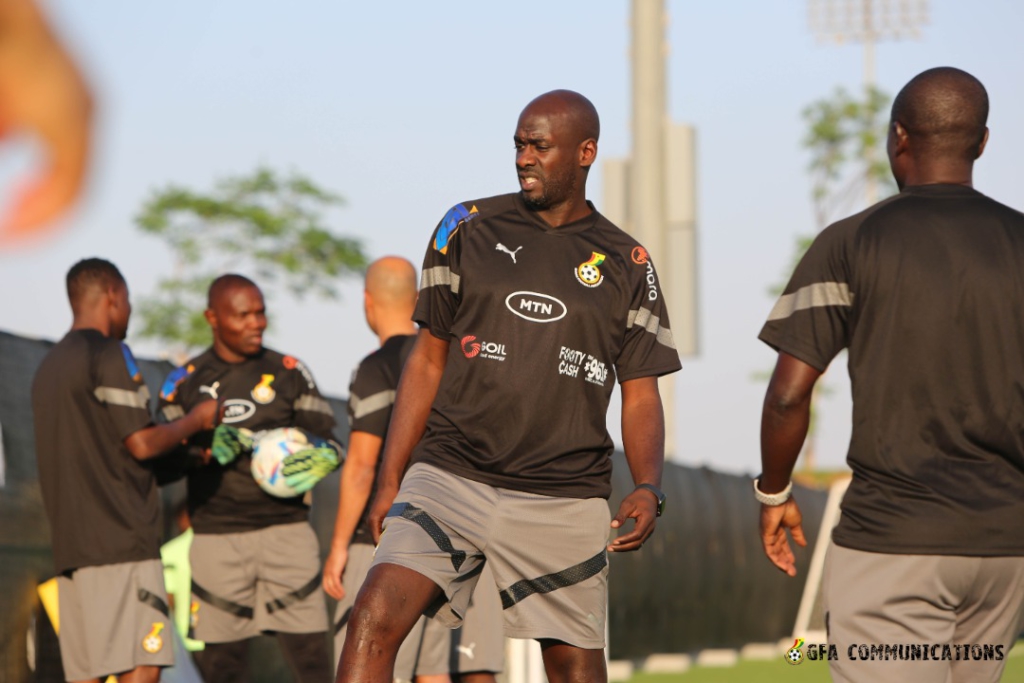
Imposed fines institutionalized by the technical team were so strict that even if one of them showed up late, punishment followed. Upon interaction with some members of the technical team who had worked with previous Black Stars coaches, the attention to details and major meetings of the Otto Addo regime was novel. At close gauge, I saw the technical team meet close to 4 times a day while in camp physically to deliberate over many issues concerning the team. Even when they were at their respective bases they would jump onto a zoom call for hours to get on the same page regarding many fluid situations.
There was an efficient distribution of tasks among the technical team with the medical team reporting the latest on the team’s health daily. On the training ground, I could see the four–man technical team work on different aspects of the team. The Black Stars camp felt organized, with players and the technical team very much informed about what was about to happen next. The usual fun including the initiation dances stayed and the camp was usually buzzing.
Lack of Cohesion – bane of World Cup 2022
While the criticism comes in hard for Ghana’s performance at the 2022 World cup, it's worth reminding ourselves of where this team was coming from.
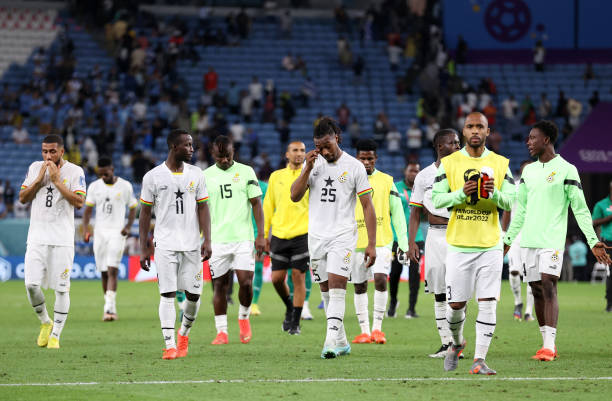
The standards for judging Ghana at the World Cup must surely be the maiden appearance in 2006 when the team exited at Round of 16 and 2010 when Ghana only missed out on the semifinals. In 2006, Ghana assembled a squad that had formed wonderful bonds and understanding from their days at youth level.
Ghana’s 2001 U20 side produced 7 out of the 23-man squad in Germany 2006. Derek Boateng Sulley Muntari, Razak Pimpong, Micheal Essien, John Mensah, John Painstil and Emmanuel Pappoe were all part of the silver-winning U 20 world cup squad and made the cut to Germany. These were easily the stars of the World Cup. In Ghana’s crucial do-or-die game against Czech Republic 5 of them started in crucial areas - Derek Boateng, Sulley Muntari, Michael Essien, John Mensah, John Painstil - and helped Ghana to an important win and the round of 16. The team had formed bonds since their youth playing days and knew each other for well 6 years before the World Cup.
The story of the 2010 World Cup was no different. About half of the 2006 World Cup squad were back in South Africa and with huge experience playing at the top level. Augmenting the squad was a select group of players from Ghana’s 2009 Un 20 World Cup winning team - Samuel Inkoom, Jonathan Mensah, Dominic Adiyah, and Emmanuel Agyemang Badu. Even before the World Cup, the young group had the chance to try out with the seniors at the 2009 CHAN competition and the 2010 Africa Cup of Nations under the same coach - Milovan Rajevac. So the team had the opportunity to strike levels of cohesion before the 2010 World Cup began. The results of the 2010 World Cup speak for itself.
Even in 2014, about 40 per cent of Ghana’s 2010 World Cup made the squad in Brazil. So historically the Black Stars have had teams represent Ghana at the World Cup with history and some experience. However, 2022 was the exact opposite.
A World Cup too soon for this squad?
Maybe yes, even though many widely believe Ghana could have made the knockout round. Traditional Ghana does a poor job of keeping squads together irrespective of their age group when competitions end up in disappointment. So after failing to qualify for the 2018 World Cup there was real trouble with keeping a consistent squad.
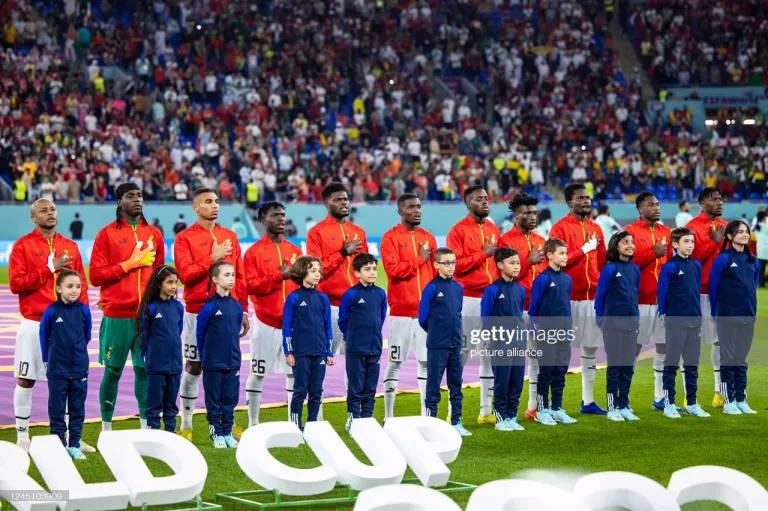
Ghana exited the 2019 AFCON at the round of 16 stage following a defeat to Tunisia which further destabilized the boat. Black Stars failed to win a game at the 2021 AFCON in Cameroun which was termed a disaster. In a short space of time, the Black Stars had seen as many as four coaches ( Kwasi Appiah, CK Akonor, Milovan Rajevac and Otto Addo. That meant continuity was a headache and the nucleus of the Black Stars kept changing.
So the key issue with this assembled group of players for the World Cup was not a lack of quality or potential but a lack of playing time together, quite literally. Otto's men were many miles off the cohesion needed at such a high-level competition. All Ghana group opponents (Uruguay, Portugal and South Korea) were at the 2018 World Cup so somewhat had a squad to fall on for cohesion and team chemistry in Qatar.
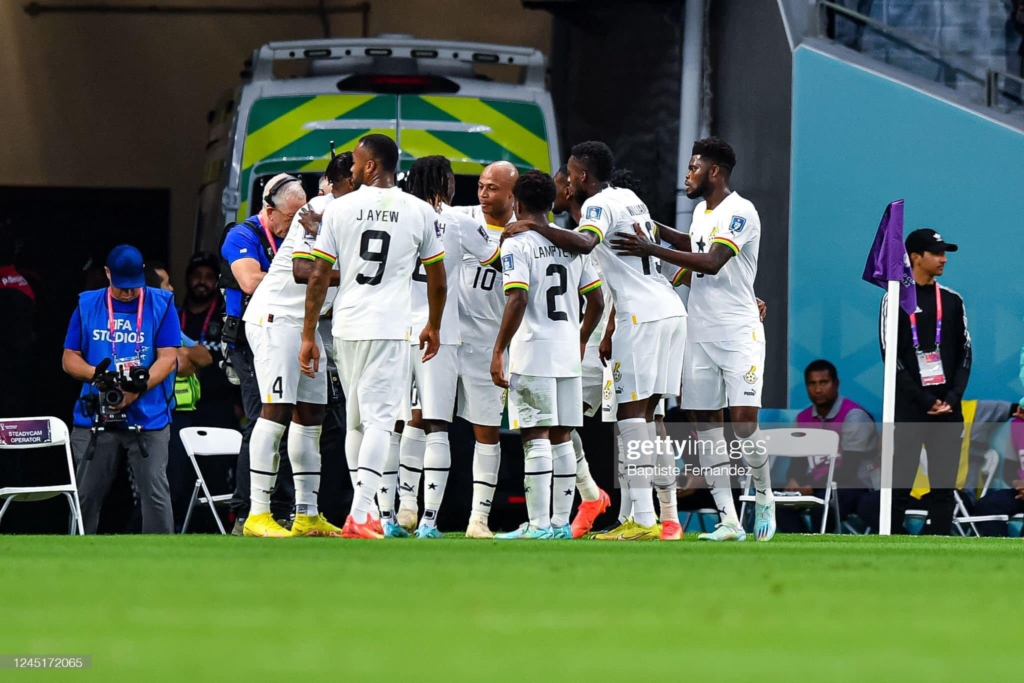
The nucleus of Ghana’s Squad for the Ghana-Nigeria 2022 World Cup qualifiers appeared to be the blueprint around which Coach Otto Addo’s new team would evolve, but there were more additions and subtractions such that the team that started at the World Cup against Portugal had six new faces in Lawrence Ati-Zigi , Baba Rahman, Alidu Seidu, Salis Abdul Samed, Inaki Williams and Mohammed Salisu.
These faces were not accidental, in fact, they were about the framework around which players were introduced deep into games in Qatar. Otto and his team were unlucky with injuries, first and second-choice goalkeepers Jojo Wollacot and Richard Ofori picked up knocks, Baba Iddrissu, who had formed a partnership of a sort with Thomas Partey was also unavailable and meant quick replacements. Time to assemble a team after the World Cup qualifiers was rare.
There were two AFCON 2024 qualifiers against Madagascar and Central Africa republic, a Kirin cup tourney in Japan quickly followed, but largely without key players in early June. The next window was in late September and October when Ghana played Brazil and Nicaragua with still some key names missing. The team had to soon Camp for the World Cup and this time, the full squad including newbies like Salis Abdul Samed and Kamal Sowah were drafted in.
The lack of time to play together as a team and find the right understanding on the pitch was pretty obvious but this squad looks promising.
Pregnant with Titles
Ghana’s best performances have come from a well-knit squad with bundles of experience and cohesion developed from competition time together. The 2006 and 2010 World Cup tournaments are perfect examples of this.
The composition of Otto’s squad for the 2022 World Cup inspires more hope for the coming years. The Black Stars squad was the youngest at the Mundial with an average age of 24.7 years. It was also by far the most inexperienced side Ghana has ever assembled for a World Cup with 24 out of the 26 participating in the competition for the first time. Only captain, Andre Dede Ayew and his brother, Jordan Ayew had tasted World Cup action before.
The balance of the squad was another strong reason to believe this team is worth keeping. In the goalkeeping department, the absence of Richard Ofori and Jojo Wollacot gave Lawrence Ati Zigi the chance to prove that he’s not far off. In central defence, Ghana can boast of Daniel Amartey (Leicester City), Alexander Djiku (Strasbourg), Salisu (Southampton) and Joseph Aidoo (Celta Vigo) who are all good and could only get better with time. At right back, Alidu Seidu (Clermont) who starred at the World Cup shares the spot with Tariq Lamptey (Brighton). Even 34-year-old Dennis Odoi (Brugge) offers an option though he may not be around for long.
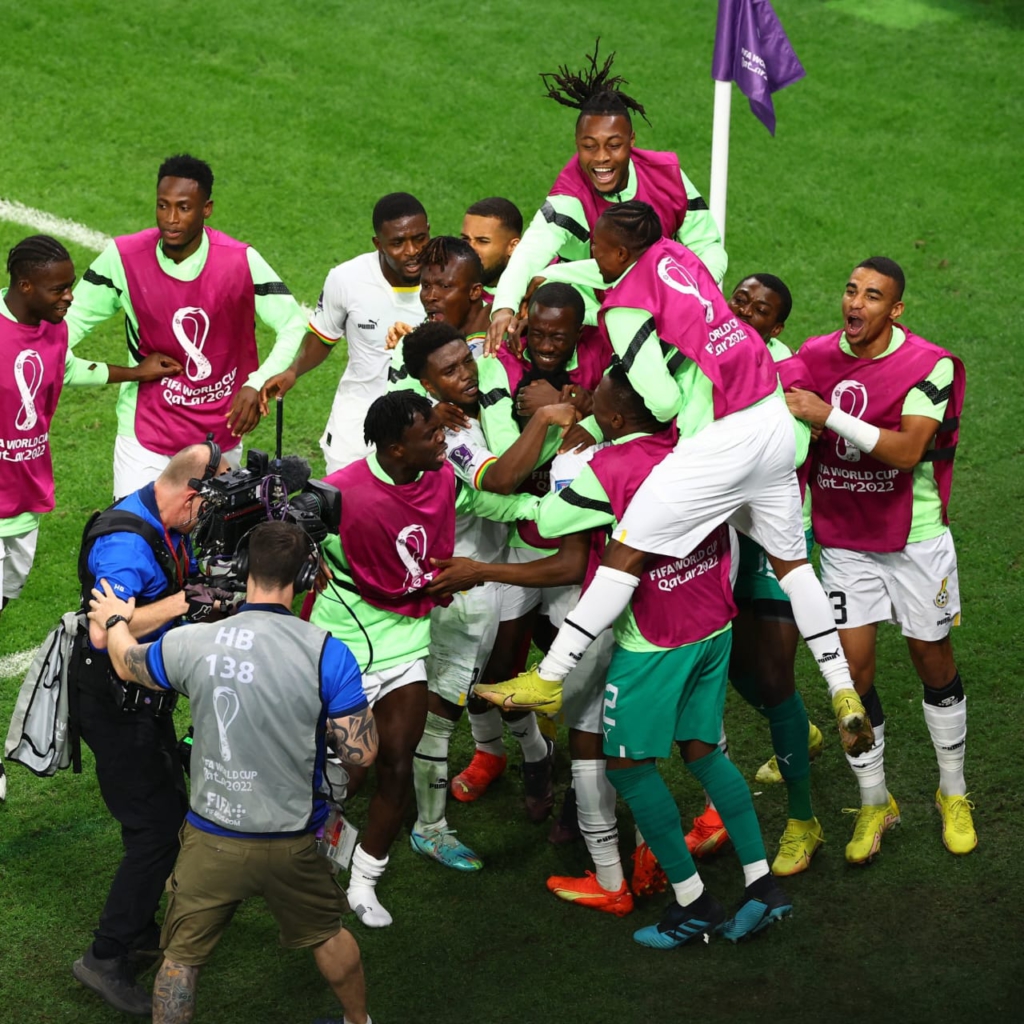
At left-back, the heavily vilified Baba Rahman (Reading) is seconded by Gideon Mensah (Auxerre) who looked great against South Korea. Deep in midfield, the partnership between Thomas Partey (Arsenal) and Salis Abdul Samed (Racing Lens) can be nurtured - not forgetting Baba Idrissu (Mallorca) who got injured ahead of the tourney and the Elisha Owusu (Gent KAA) who didn’t feature in Qatar. On the right side of attack, there’s Jordan Ayew (Crystal Place), Club Brugge’s Kamal Sowah and Sporting’s Fatawu Issahaku who will get much better with time – On the left wing Kamaldeen Sulemana (Rennes), Osman Bukari (Red Star Belgrade), Antoine Semenyo (Bristol City) are all exciting wingers with pace and enough tricks to outwit defenders in one on one situations. Upfront Inaki Williams (Athletic Club) and Dede Ayew (Al Sadd) can do the job.
Of course, we cannot go on without the star boy in Qatar -- Mohammed Kudus, who scored twice against South Korea and breathed life into the team when everything seemed to be over. There is no surprise many tip him as the star around which the team should be built.
Surely this team needs a few tweaks and more time to develop the right chemistry. The squad managed to win Ghana’s first game at the World Cup since 2010 and suffered together against Portugal and Uruguay. These are key experiences that help the growth of a squad – they have learnt more about each other the hard way and this is invaluable for a team this young.
Keep this group together
Expectations for Ghana at the World Cup went through the roof after a 2-0 win against Switzerland. But in fairness, a squad as inexperienced as Otto's could only punch above their weight to make the knockout phase. The win against South Korea was inspiring and possibly did whet the appetite of many fans who felt making the Round of 16 was a must.
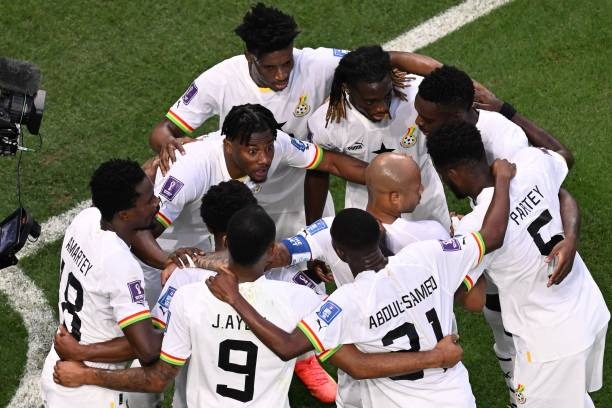
Yes, Ghana could have finished second and played against Brazil in the Round of 16 but nothing more really. It’s time to stop the ranting and let the planning begin around a squad which is pregnant with titles.
Latest Stories
-
Scientists make case for intercropping amidst climate change impacts
13 seconds -
Government urged to boost TVET to reduce unemployment
4 minutes -
Leading NPP member proposes revision of requirements for higher party roles
9 minutes -
Embedding Ethical AI in Public Procurement: Ghana’s path to trustworthy automation in E-governance
12 minutes -
Seth Terkper to launch book on Ghana’s VAT journey and lessons for Africa
14 minutes -
The silence around Nana Pooley’s case: When justice sleeps, society suffers
15 minutes -
UTAG president challenges Chinese Ambassador over galamsey remarks
16 minutes -
The Escalating Israel-Iran War: A new threat to global trade
25 minutes -
Seven killed in Kyiv in new Russian aerial attack
29 minutes -
Hearts’ $70,000 transfer saga with New Edubiase is being resolved – Opare Addo
40 minutes -
Former Deputy Foreign Affairs Minister questions Mahama’s recall of 3 career diplomats
41 minutes -
Senior NPP figure in Ashanti region advocates grassroots experience as prerequisite for top party roles
54 minutes -
Hindsight: How Maxwell Konadu lost the Hearts coaching job to Didi Dramani
60 minutes -
Scars of Hooliganism: GFA should ‘stop talking so much and do more’ – Herbert Mensah
1 hour -
Mass dismissal: BoG’s decision should be respected – Vickie Bright
2 hours

